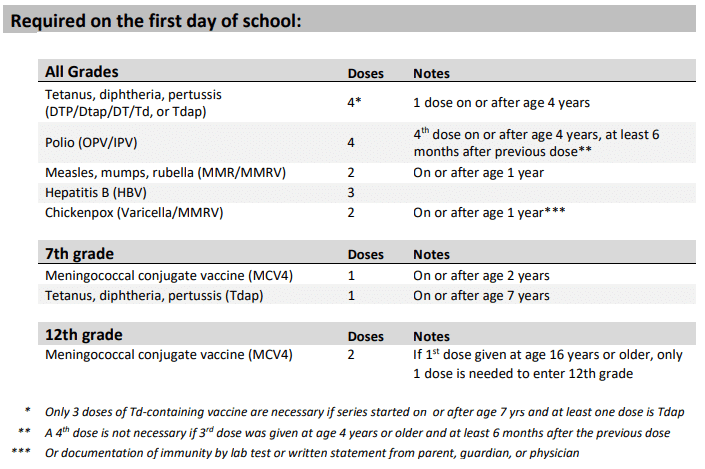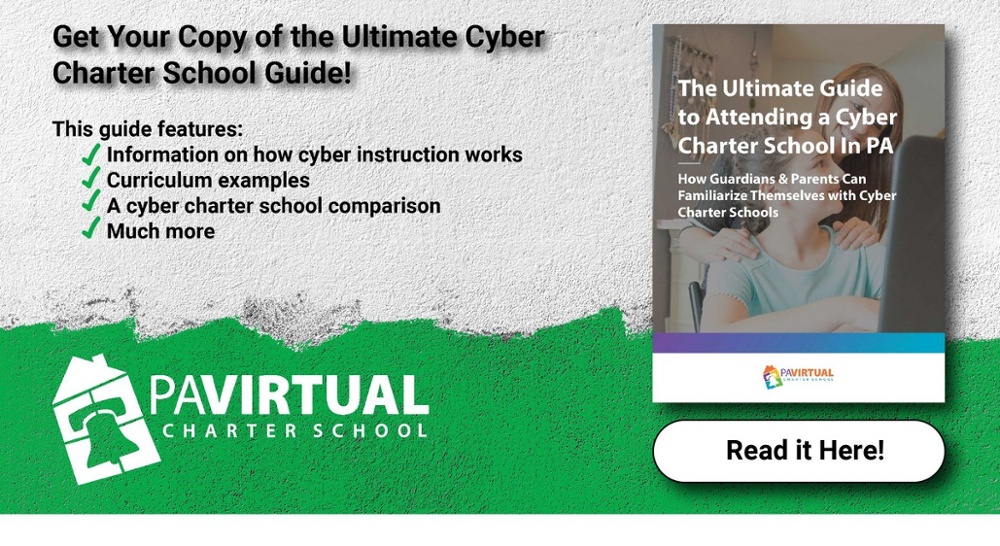It’s 2020, and many parents are looking in a new direction for the education of their children – schooling from home. Homeschooling is a home-based education program created by the parent, and in the past, consisted of a parent creating and executing lessons for their child at home. When it comes to home education, technology has created a new opportunity – for online schools to better cultivate and support both students and parents. So, you may be wondering, "How hard is online school compared to homeschooling?"
Online school (also known as virtual school, e-school, or cyber charter school) is a method where instruction is shared primarily via the internet. Online education exists all around the world and is used for all levels of education.
As a parent, it can be overwhelming when it comes time to figure out the best course of action for your child’s education. How parents approach their child’s education is important and knowing what steps are involved takes some navigation.
This guide is designed to help you understand the task ahead, should you decide to enroll your child in a cyber charter school or to home school.
Registration for Cyber Schools & Homeschooling
If you’ve decided on PA Virtual Charter School, here are the steps for registration:
- Parents complete a brief enrollment application which gathers basic information such as name, address, emergency contacts, county, previous schooling, and special education needs (if applicable).
- You select a day and time that is convenient for the school’s Enrollment Department to contact you. They will walk you through the model of education, gather a little more information, answer your questions, and let you know the next steps.
- Per legal requirements, you must submit supporting documentation to complete the enrollment process for your child. You will need the following: a student birth certificate, parent proof of residency, student record of immunizations, proof of guardianship and/or custody if applicable, as well as registration forms.
- You will be asked to provide previous school records if the student is transferring into the school (if applicable).
- A follow-up call from PA Virtual will finalize enrollment and confirm your child’s start date.
- Since PA Virtual is a public school, your child will receive a laptop, printer, and curriculum materials to use for the school year.
- Most cyber charter schools offer an orientation program to allow students and parents a chance to learn how to navigate the school’s online system and academic program.
If you are considering homeschooling your child, there are some laws and requirements a parent needs to know.
Homeschooling in Pennsylvania requires that the parent/homeschool teacher have a high school diploma (or equivalent) and a criminal record showing no major offenses within the past five years. You must also submit a notarized affidavit yearly to the superintendent's office of the student's home school district.
Continue reading below...
Tracking Attendance for Cyber & Homeschooled Students
State law mandates that homeschooled and cyber charter school students attend a minimum of 180 days of instruction, or 900 hours of instruction per year at the elementary level, and 990 hours per year of instruction at the secondary level.
Just as a school-aged child’s attendance is vital (and required by state law) for their educational potential in a brick and mortar school, it is also vital in a k-12 virtual charter school setting. In order for a student’s legal attendance to be counted in a cyber charter school, he/she must login each day that school is in session. If the student skips logging into the school’s online platform, it is the equivalent of an absence. Cyber charter schools are public and are funded by tax dollars, thus they are required to submit a list of unexcused absences through the Pennsylvania Information Management System, known as PIMS, to the Pennsylvania Department of Education.
Whereas k-12 virtual charter schools use an online platform to log and record attendance, it is vastly different for students who are home-schooled.
According to the Home Education and Private Tutoring Guide, yearly evaluations and portfolios are required of all home-schooled students covering the period of time when they are of compulsory school age – meaning between the ages of 6 and 18, or until they have graduated. (24 P.S. § 13-1326).
Minimum Portfolio Requirements are:
- Samples of any writings, worksheets, workbooks or creative materials used or developed by the student.
- A log, made contemporaneously with the instruction, which designates by title the reading materials used.
The person in charge of homeschooling must maintain a log that demonstrates that the home education program provided a minimum of either (1) 180 days of instruction or (2) 900 hours of instruction per year at the elementary level (kindergarten to 6th grade), or 990 hours per year at the secondary level (7th-12th grade). If the choice is to document days, the portfolio does not need to specify the number of hours per day. The evaluations are submitted each year to the superintendent for verification that an appropriate education has taken place.
Just as state law requires tracking attendance, the state also mandates students are in compliance with health requirements.
State-Mandated Health Forms
The Pennsylvania Public School Code Section 1402. Health Services (e) requires that students upon original entry to 6th grade and 11th grade be given a "comprehensive appraisal" of their health. This requirement may be completed by the student's primary care provider (MD, DO, CRNP, PA) or by the school provider. (Health Form Link)
Except in cases where a medical, religious, or philosophical/moral/ethical exemption has been claimed, all students attending a brick and mortar school, homeschooling, or k-12 virtual charter school, are required to submit immunization records.
Homeschooled students are required to submit their health forms and immunization records to their school district.

Chart from City of Philadelphia Department of Public Health
State-Mandated Testing
Cyber Charter School students are required to participate in state-mandated testing. Students take the Pennsylvania System of School Assessment (PSSA) and Keystone exams.
PSSA includes assessments in English Language Arts and Mathematics which are taken by students in grades 3, 4, 5, 6, 7 and 8. Students in grades 4 and 8 are administered the Science PSSA.
Keystone Exams are end-of-course assessments in designated content areas – English Language Arts, Algebra, and Biology. The Keystone Exams serve two purposes: (1) high school accountability assessments for federal and state purposes, and (2) a component of the statewide high school graduation requirement for students beginning with the class of 2022.
The law requires that homeschooled students take the statewide tests or other authorized tests in grades 3, 5, and 8. The results must be reported in the portfolio.
Report Cards & Evaluations
Just like your local district schools, cyber charter schools issue report cards, progress reports, and high school transcripts. Report cards are issued by the school to the student or the student's parents twice to four times yearly. A typical report card uses a grading scale to determine the quality of a student's school work.
A report card is not necessarily issued when homeschooling. As mentioned before, homeschooled students must submit an evaluation each year by June 30th to the superintendent of their school district for verification that an appropriate education has taken place.
Each year the evaluation is submitted, it certifies whether an appropriate education is occurring for the student up until graduation.
Graduation Credit Requirements
As of 2020, Pennsylvania requires all high school graduates attending cyber charter school to complete 120 hours instructional education with a minimum of 21 credits, including:
- 4 credits in English
- 3 credits in math
- 3 credits in science
- 3 credits in social studies
According to the Pennsylvania Department of Education, Senate Bill 1095 will expand the options for students to demonstrate post-secondary readiness using four additional pathways that more fully illustrate college, career, and community readiness. The statewide graduation requirement for Senate Bill 1095 will take effect for the graduating class of 2022.
While PDE does not provide or track individual diplomas of students participating in homeschooling, home education programs have multiple paths to a state-recognized diploma. Act 196 of 2014 modified the law to allow home school educators to award a state-recognized home educational high school diploma to their children.
Homeschooling graduation requirements and obtaining diploma steps are as follows:
- The supervisor must submit an affidavit to the superintendent of schools in their district of residence for the student’s twelfth grade (graduation) year
- The student must complete the graduation requirements of the law while enrolled in the home education program (in regards to testing)
- The home education evaluator must fulfill the legal requirements as a secondary level education evaluator
- The evaluator who signs the diploma, in confirmation that the student has completed the graduation requirements of the law, must be the same evaluator whose evaluation was submitted to the school district for the student’s twelfth grade (graduation) evaluation
- The diploma must be awarded to the student on a standardized form developed by PDE
Overall, parents have the best understanding of which educational path their child should take. A parent may choose to create, curate, and execute their child’s curriculum themselves in a homeschool setting, or they may prefer having access to certified teachers, curriculum, and supporting technology at home, while maintaining autonomy as well.
Online schooling compared to homeschooling varies in implementation, but both require parents’ 100% commitment in their child’s learning. As a parent who homeschools, you get to choose when, where, and what your child learns, but must submit the required documentation to verify yearly educational learning. Cyber Charter Schools track progress, coordinate state-mandated testing, issue reports cards, and award state-recognized diplomas. Education leads to success in life, and that is the ultimate goal in homeschooling or online schooling.
Do you think online schooling might be a good fit for your child? If you’re interested in learning more, we invite you to check out The Ultimate Guide to Attending a Cyber Charter School in PA. This guide will answer your questions and paint a clearer picture about what a cyber charter school experience would look like for your child.






Comments